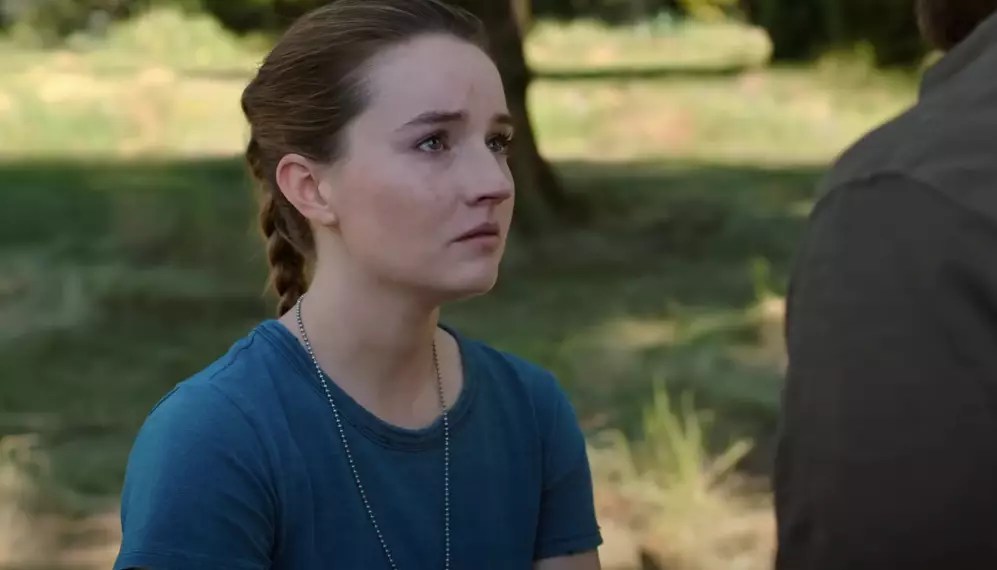At the opening of *The Last of Us Season 2*, a standout moment occurs when Kaitlyn Dever’s character, Abby, articulates her deep-seated desire for vengeance against Joel—a pivotal figure in the series portrayed by Pedro Pascal. Abby’s chilling monologue, where she emphasizes her intention to kill Joel “slowly,” serves as a profound exploration into the dark depths of grief and rage. Dever describes this moment as “chilling,” portraying Abby as a character engulfed by emotional turmoil. This encapsulation captures not only her thirst for revenge but also the heartbreak and sadness that drives her motivations. The complex showcase of Abby’s emotional landscape hints at an intriguing character arc that commands the audience’s empathy, despite her seemingly villainous aspirations.
Character Complexity and Narrative Depth
Abby’s introduction has sparked considerable commentary ever since its debut in *The Last of Us: Part II*. The discussions surrounding her character have become a fundamental part of the series’ narrative, drawing out themes of morality, vengeance, and the consequences of one’s actions. Dever’s awareness of this discourse enriches her portrayal of Abby. She recognizes the weight of the character within the broader context of the game’s storyline, yet aims to approach the role with artistic integrity. Instead of succumbing to the noise from critics and fans alike, Dever prioritizes authenticity in her performance, echoing the notion that understanding a character’s motivation requires delving deeper than surface-level opinions.
A Performance Steeped in Trust
Interestingly, Dever was cast for the role of Abby without the traditional audition process, a significant departure from the usual casting methods. Mazin and Druckmann, the creative minds behind *The Last of Us*, extended their trust to Dever based on their previous interactions and an understanding of her capabilities as an actor. Dever elucidates this dynamic in her interview, expressing how having the confidence of seasoned storytellers provided her the freedom to explore the nuances of her character. The assurance from directors inspires not only the actor’s performance but also the audience’s experience, positioning Abby as a nuanced character whose journey intertwines with that of Joel, despite their conflicting desires.
Shifting Perspectives and the Role of Controversy
Abby’s narrative arc raises an important question about the nature of good versus evil in storytelling. The duality of her character challenges viewers to grapple with their own perceptions of morality. While many viewers sympathize with Joel as a protagonist, Abby’s quest for revenge serves as a reminder of the cyclical nature of violence and trauma. The conversation surrounding her character, laden with complexity, invites the audience to reconsider preconceived notions about right and wrong. While some fans lament her portrayal due to their allegiance to Joel, others find themselves drawn to the raw human experience that Abby embodies.
Viewer Engagement and a Strong Start
The premiere of *The Last of Us Season 2*, which garnered 5.3 million viewers on its debut night, is indicative of the show’s compelling narrative hooks and character developments. The increase from the first season’s premiere reflects the growing investment from the audience, demonstrating that engaging storytelling resonates strongly within contemporary entertainment landscapes. The series’ ability to tackle difficult themes while keeping audiences captivated bodes well for its future narratives, hinting at further exploration of character confrontations and moral dilemmas.
An Emotional Odyssey
In exploring Abby’s emotional storyline, *The Last of Us Season 2* promises to deliver a profound statement on revenge and redemption. As the series unfolds, audiences are likely to witness a multifaceted portrayal that goes beyond the superficial label of villainy. The blend of dark themes with moments of vulnerability renders Abby’s journey not just one of revenge, but also a quest for understanding amidst chaos. Ultimately, as viewers delve deeper into Abby’s psyche, the resonance of her story becomes apparent, inviting reflection on the lengths individuals will go to process their pain and seek closure.
Dever’s performance signals a new chapter for the series, one that intertwines the visceral impact of vengeance with the intricate tapestry of human emotions. The complexity of Abby’s character serves as a powerful reminder that in the world of *The Last of Us*, every character, regardless of their actions, possesses a heart that yearns to heal.


Leave a Reply